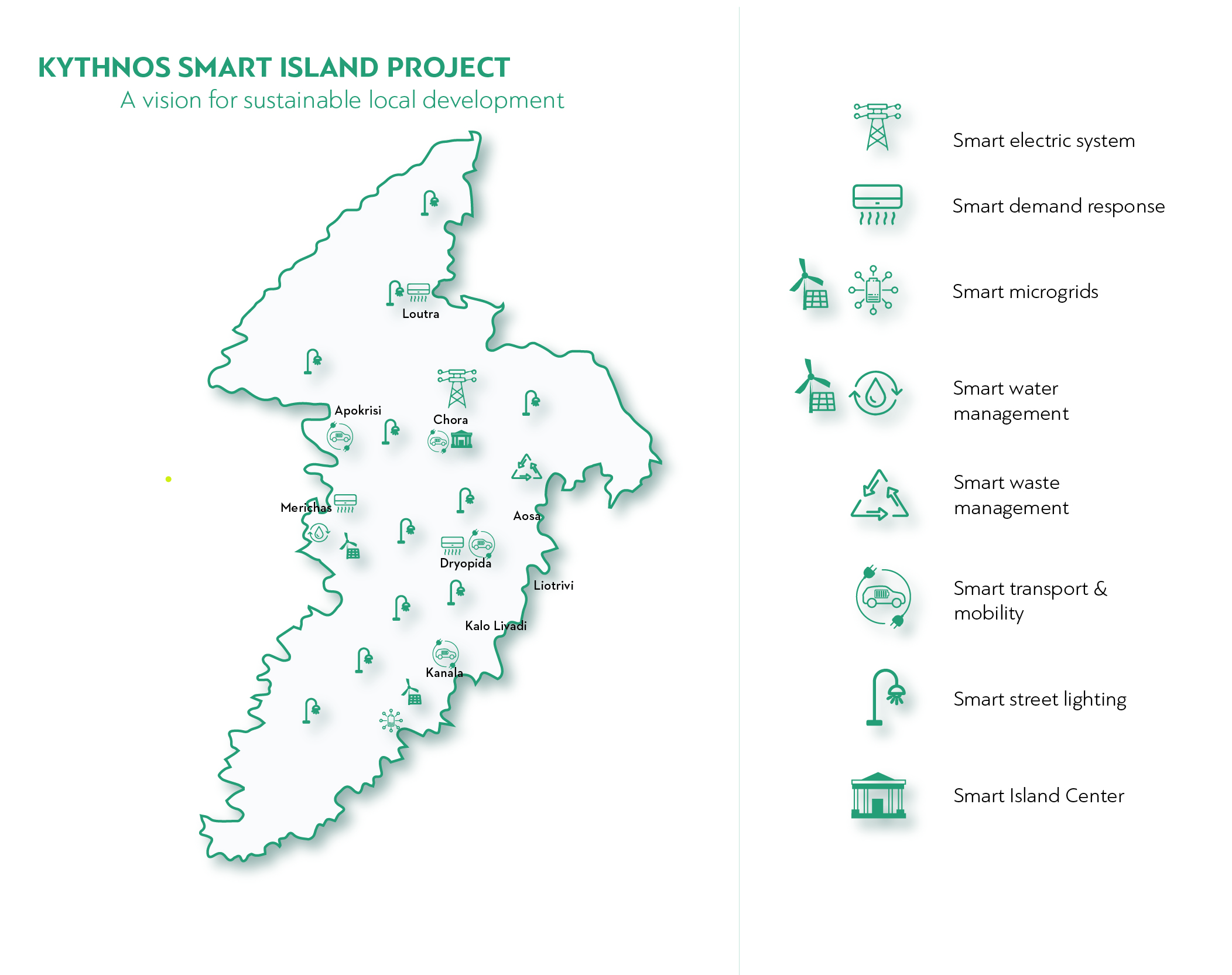
"Kythnos Smart Island" is the biggest research and development project ever to be implemented in the Greek islands, and as such represents a lighthouse project both for Greece and the international community.
With a budget of approximately 8 million euros, the project will help Kythnos embark on a local development paradigm that harnesses the unique natural and cultural capital of the island, creates sustainable growth and offers high-quality of life to locals and visitors.
In the years to come, Kythnos will become a true “living lab” where innovative solutions for the efficient upgrade and smart management of local infrastructures, including energy, water, waste, transport and street lighting will be designed and deployed.

These interventions will lay the foundation for the island to extend its tourism season beyond traditional peak periods and strengthen the interdependence of its primary, secondary and tertiary sectors; ultimately, building a local economy that is diverse, circular and sustainable.
The project will be implemented by the Network of Sustainable Greek Islands DAFNI and the Institute of Communication and Computer Systems (ICCS) of the National Technical University of Athens (NTUA).
With the unparallelled support of the society and municipality of Kythnos, their advanced scientific and technical
expertise and thorough understanding of the local needs and growth potential of Kythnos, the two organizations are best placed to guarantee the successful execution of the project, which will bring multiple benefits not only to Kythnos, but to Greece’s island community as a whole.
Overall the project is set to have a significant positive impact on the Greek economy for three main reasons:
- Greek researchers and experts will be employed in the project, contributing to efforts of mitigating skilled migration and brain-drain;
- The project will offer solutions to lasting challenges related with infrastructure management in Kythnos, challenges facing also (many) other Greek islands;
- The knowledge produced will be transferred to other islands and geographically remote areas, mountainous and rural, and scaled-up in cities, offering valuable insights to the rise of the future “smart city”.
The selection of Kythnos as test-bed for this landmark project is linked with the fact that Kythnos is close to Athens and well-connected with the two major ports of Piraeus and Lavrio; is not included in the interconnection plans and will hence remain non-interconnected with the mainland electrical system for the coming years; and has a long and successful track-record of hosting innovative technologies.
For more information, please see here (in Greek).
